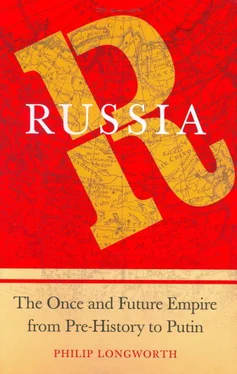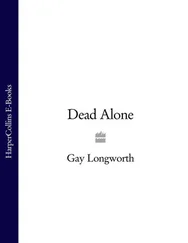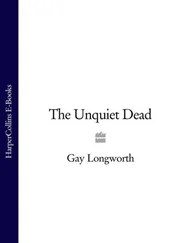Poland had made peace with Sweden and once more turned against Russia. Worse, there was a crisis of confidence in the ruble. As war expenditure had soared, the government had succumbed to the temptation of devaluing the currency. More particularly it had been minting copper instead of silver coins. This eventually triggered the great Moscow ‘copper riot’ of 1662, when people realized that the new coins were worth less than their face value. In Ukraine they already understood this apparently because the copper coins were first used to pay the Russian soldiers serving there. The value of the coins they tendered in the local markets was discounted, and sometimes the coins were refused altogether. This not only created stresses between Ukrainians and Russians, it encouraged mutiny. The soldiers had to be paid in real money. Within a year the minting of copper coins was discontinued and the offending copper kopeks were withdrawn from circulation. But the remedy was costly: rises in taxation, and the imposition on merchants of extraordinary levies on their capital wealth.
Meanwhile the situation in Ukraine went from bad to worse. Deserted by Bogdan’s son and successor, lurii Khmelnytsky, a Russian army found itself in an untenable position, surrounded by Polish forces, Crimean Tatars and dissident Cossacks. It surrendered. The Tatars began to massacre the disarmed troops before taking the rest into captivity. The commanders had to wait twenty years for their release. 30
Gritting his teeth, the Tsar worked towards the election of another hetman, this time a shrewd illiterate called Briukhovetsky, who was favoured by the Cossacks of the Zaporozhian Sech and a hero to the Ukrainian poor. But the opposition was stiff. At last, in July 1663 at a chaotic and bloody Cossack assembly at Nezhin, Briukhovetsky was elected. But many Cossacks would not be reconciled to him. Opposition increased as Russian tax-collectors moved in, and a rival hetman with Turkish support, Doroshenko, took control of west Ukraine.
The major parties were exhausted by the time peace talks began in 1666, yet these were as hard-fought by the diplomats as the war was by the soldiers. It was finally agreed that Russia would keep Smolensk, Chernigov and part of Vitebsk province, and that Ukraine should be divided: the west for Poland; the east for Russia, which would also hold Kiev for two years (but in the event was able to hold it permanently). Both parties were to cooperate against the Turks. The Tsar’s steadfastness had at least secured half of Ukraine. 31
He was by no means the only hero of the hour, however. There were also peasant boys hectored by foreign officers until they learned how to slow march, handle a musket, fire it to order, and face the enemy (for to turn tail involved greater risks from the officers stationed at the rear); the poor gentry, who spent most of their income on maintaining their horses and equipment in a state of battle-readiness, and who fought for nothing except the free labour of a couple of serfs; and the ancient veterans who bore the scars of a dozen desperate fights on dangerous frontiers.
Artemii Shchigolev was an example — a professional serviceman who began to serve at Livny in his youth, helping to guard the steppe frontier. He was transferred to Bronnitsy just outside Moscow for a time, but was wounded and taken prisoner at Orel during the Time of Troubles and spent over two years as a prisoner in Poland. On his return he was enlisted as a mounted musketeer and sent to Ufa in the far south-east. He spent the next twenty-five years there, at first relatively quietly, but then in the 1630s the Kalmyks burst into the Ufa region, launching themselves into a ruthless campaign of plundering and burning. Shchigolev was among those who faced them in battle. He killed two men, but was wounded by an arrow which passed right through his chest. In another battle he rode in the van of an attacking force alongside his two sons. One of them was killed in the action, and he himself received another arrow in the chest. For ‘his many services, the blood he had shed, his wounds and the blood shed by his sons’ he was eventually rewarded with a small gift of money and a modest service estate. 32
The Kalmyks were new and unwelcome arrivals, not only to the Russians but also to other peoples between the Urals and the Caucasus. They had come from Tibet via Central Asia and, though Buddhists, were as ruthless as any of the steppe predators who had preceded them — and contemptuous of the Russians when they attempted to come to terms. Yet before long the Kalmyks were to become allies. This achievement was due in part to Moscow’s powers of diplomacy, and its deep understanding of the Kalmyks’ wants and psychology; in part to its ability, in the old imperial tradition, to divide and rule, playing them off against neighbouring Nogais, Kabardinians and Crimean Tatars; 33but chiefly to Russia’s success towards the end of the century in capturing the Turkish citadel of Azov. And so the Kalmyks were finally persuaded to co-operate. That said, Moscow’s diplomatic skills were as important as force in shoring up and extending Russia’s new position in Eurasia.
Effective diplomacy depends on accurate intelligence and knowledge of an opponents past as well as present condition, dealings and ambitions. Though Westerners often scorned Russians as barbarians, Moscow’s external-affairs department was already proving itself to be more effective than some of its Western counterparts. This may seem surprising, since Russian diplomacy is often, and rightly, characterized as hidebound and slow rather than brilliant. But unlike Poland’s diplomats, who were noble amateurs, Russia’s were humble professionals, trained by endlessly copying diplomatic correspondence and by listening silently, and watching closely, when their betters engaged in the often tedious formalities of governmental exchange. They recorded everything, and they maintained their records for future reference. 34
This was the basis of Russia’s superior system of intelligence. But it was supplemented by the collection and transcription of news-sheets (Flugschriften) , the forerunners of modern newspapers, which the Tsar ordered from his factors in western Europe. Summaries of their more important reports and digests of intelligence gathered from merchants and monks, diplomats and emigres kept the Tsar and his top officials up to date on foreign military and political news, and apprised them of any unusual events. Occasionally the Tsar would ask for a report on something abroad which had sparked his curiosity, and so the department came to be as well informed about the topography of Venice and the Florentine theatre as about the hopes and fears of the Habsburg Emperor, the policies of Denmark’s king, and the commercial pursuits of the English and the Dutch. And it was accurate intelligence about Polish politics that prompted the Tsar to send funds — through Benjamin Helmfeldt and the Marselis brothers, his agents in Germany — to support Prince Liubomirski’s rebellion of 1666, 35hoping it would help to soften the negotiating line of the Polish government at Andrusovo.
By the time Alexis died, early in 1676, Russia had made its mark as a European power. Denmark wanted it to join in a coalition against Sweden; Poland wanted its aid against the Tatars; the Emperor wanted it to join in coalition against the Turks. But in 1682 the unexpectedly early death without issue of his successor, his eldest son, Fedor, raised doubts about Russia’s political stability once again. Of the two obvious candidates to succeed Fedor, Ivan, Alexis’s surviving son by his first wife, was handicapped, and Peter, Alexis’s son by his second wife, though healthy and intelligent, was only eight years old. This exacerbated the tensions which already existed at court between the old guard, including the last tsar’s chief minister, Artamon Matveyev, and ambitious younger men like Vasilii Golitsyn and Ivan Khovanskii. 36This might not have mattered if two domestic problems had not now come to a head.
Читать дальше





![Stephan Orth - Behind Putin's Curtain - Friendships and Misadventures Inside Russia [aka Couchsurfing in Russia]](/books/415210/stephan-orth-behind-putin-s-curtain-friendships-a-thumb.webp)





